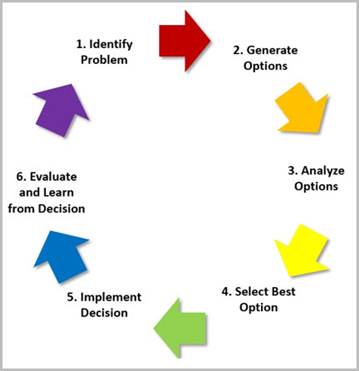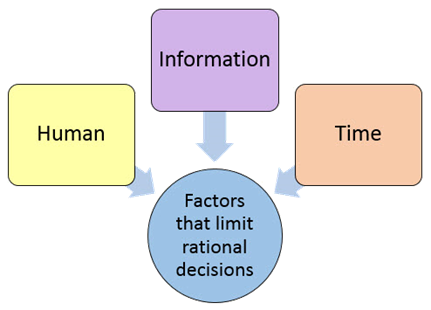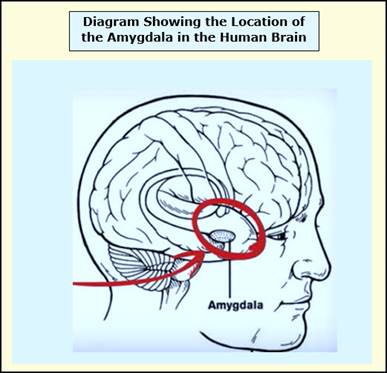WHAT ARE RATIONAL DECISIONS?
A
rational decision, which is based on sound evidence, contributes the most
toward achieving your goals. When you
decide something rationally, you follow a reasonable a process to make a
decision. As the decision-maker, you
collect and support your choice with specific information related to a question
or a problem.

To
make a rational decision, you first
must decide what you hope to accomplish.
Once you determine the end result, you can begin to gather information
concerning the issue. The thought
process continues. Next, you determine
the pros and cons of each available option.
Which ones are the most likely to produce the results that you
want? Which ones are you most able to
complete successfully? When you have
made a correct estimate of the benefits and drawbacks of each possible course
of action, the one that contributes the
most toward the accomplishment of your goals is the rational decision.
What
are the characteristics of a rational decision?
You
can recognize a rational decision by the following characteristics:
·
The
decision is made through an orderly process from start to finish;
·
The
decision is considered the best of all possible alternatives;
·
The
decision agrees with who you are and what you believe;
·
The
decision is objective and based on facts;
·
The
decision is based on adequate and true information;
·
The
decision reflects the careful consideration of the consequences of each option;
·
The
decision results from self-questioning and deep thinking.

Are
there any problems to trying to make a decision this way?
There
are three areas that could lead to problems if you make a decision rationally.
Human
limitations: Humans are limited. You can collect and process all the information
you are able to get about a decision, but you cannot know everything. You can only collect what you know to
collect. What about the information you
don’t know to collect? When obstacles
get in the way, humans are usually okay with a decision that is acceptable but not
necessarily the best. Humans also have
biases (prejudices for or against something) that keep decision-makers from accurately
predicting the consequences of their actions.

Information
limitations: Although you can collect the best knowledge available
through the decision-making process, there are limitations. For example, there may be simply too much
information to analyze in a reasonable amount of time. Some items that you thought were accurate may
prove not to be.
Time limitations: While you are in the process of searching for
the best solution, you can miss one of the best options. Researching answers takes time. In that time, one of the alternatives could
have come and gone. When this happens,
you no longer have access to that idea.
.
You
and Your Brain
Have
you ever said to your parents, “I’m old enough to make my own decisions!”? Have your parents responded by saying, “No
you’re not!”? They may be right! However, that doesn’t mean that you cannot
make good decisions. All you need is
some practice and conscious thought Whew!
Researchers
have compared the responses of adult brains and teenage brains in a number of
situations. When adults are processing emotions, their brains have greater
activity in their frontal lobes.
They also have lower activity in their amygdala
(the part of the brain that deals with emotions, emotional behavior, and motivation)
than teenagers. As teens move into
adulthood, the overall focus of brain activity seems to shift from the amygdala
to the frontal lobes.

What
happens in the frontal lobes? It’s the
part of the brain that helps you control emotions and impulses. Through the activity in the frontal lobes, we
recognize right from wrong and connect causes to effects. To make a long story short, this part of the
brain fully develops during adulthood.
During your teen years, it is a work in progress. Therefore, you are a work in progress. While your brain is still in this stage of
development, it is important to protect it.
Things like stress, substance abuse, and a poor diet can result in
serious damage. You want to keep all
parts of your brain in good working order!
Click on the icon below. The
video explains how damaging alcohol can be to the developing brain
Research
also shows that adults use rational, decision-making processes when facing
emotional decisions. Teenage brains have
not matured enough to perform this same task easily. Dr. Yurgelun-Todd, an expert in the area of
brain research, told U.S. News, “Good judgment is learned, but you can’t learn
it if you don’t have the necessary hardware.”
Your brain will probably be developing until you are well into your
twenties.
Does
that mean you are always going to make irrational decisions? No, it does not. Again, it means that you are a work in
progress. With the right guidance, teens
can control impulsive, emotional reactions and make good, rational decisions.
Take
another look at how the brain works when you are in your teen years.

Below are additional educational resources and activities for this unit.